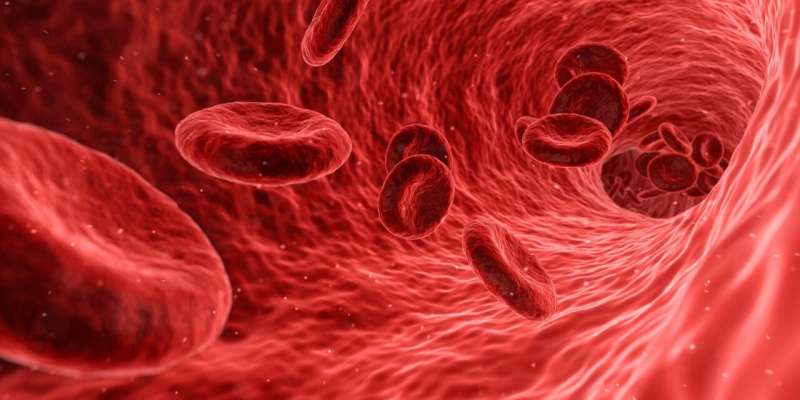This article has been reviewed according to Science X's editorial process and policies. Editors have highlighted the following attributes while ensuring the content's credibility:
fact-checked
peer-reviewed publication
trusted source
proofread
Gut bacteria linked to fatty deposits in heart arteries

In a major Swedish study, researchers have discovered a link between the levels of certain bacteria living in the gut and coronary atherosclerotic plaques. Such atherosclerotic plaques, which are formed by the build-up of fatty and cholesterol deposits, constitute a major cause of heart attacks. The study was led by researchers at Uppsala and Lund University and the findings have now been published in the journal Circulation.
The new study was based on analyses of gut bacteria and cardiac imaging among 8,973 participants aged 50 to 65 from Uppsala and Malmö without previously known heart disease. They were all participants in the Swedish CArdioPulmonary bioImage Study (SCAPIS).
"We found that oral bacteria, especially species from the Streptococcus genus, are associated with increased occurrence of atherosclerotic plaques in the small arteries of the heart when present in the gut flora. Species from the Streptococcus genus are common causes of pneumonia and infections of the throat, skin and heart valves. We now need to understand whether these bacteria are contributing to atherosclerosis development," says Tove Fall, Professor in Molecular Epidemiology at the Department of Medical Sciences and the SciLifeLab, Uppsala University, who coordinated the study together with researchers from Lund University.
Advancements in technology have enabled large-scale deep characterization of bacterial communities in biological samples by sequencing the DNA content and comparing it to known bacteria sequences. Additionally, improvements in imaging techniques have enabled the detection and measurement of early changes in the small vessels of the heart. The SCAPIS study represents one of the largest collections in the world of both these kinds of data. In this study, scientists investigated the links between the gut microbiota and the build-up of fatty deposits in the arteries of the heart.
"The large number of samples with high-quality data from cardiac imaging and gut flora allowed us to identify novel associations. Among our most significant findings, Streptococcus anginosus and S. oralis subsp. oralis were the two strongest ones," says Sergi Sayols-Baixeras, lead author from Uppsala University.
The research team also found that some of the species linked to the build-up of fatty deposits in heart arteries were linked to the levels of the same species in the mouth. This was measured using fecal and saliva samples collected from the Malmö Offspring Study and Malmö Offspring Dental Study. Furthermore, these bacteria were associated with inflammation markers in the blood, even after accounting for differences in diet and medication between the participants who carried the bacteria and those who did not.
"We have just started to understand how the human host and the bacterial community in the different compartments of the body affect each other. Our study shows worse cardiovascular health in carriers of streptococci in their gut. We now need to investigate if these bacteria are important players in atherosclerosis development," notes Marju Orho-Melander, Professor in Genetic Epidemiology at Lund University and one of the senior authors of the study.
More information: Sergi Sayols-Baixeras et al, Streptococcus Species Abundance in the Gut Is Linked to Subclinical Coronary Atherosclerosis in 8973 Participants From the SCAPIS Cohort, Circulation (2023). DOI: 10.1161/CIRCULATIONAHA.123.063914





















